
ABOUT SCOTT FRANKLAND
Scott Frankland is Head of Content at Sengerio. His spirit of inquiry leads him to the world of transportation and mobility to connect with the industry’s leading experts and shine a light on the hot topics.
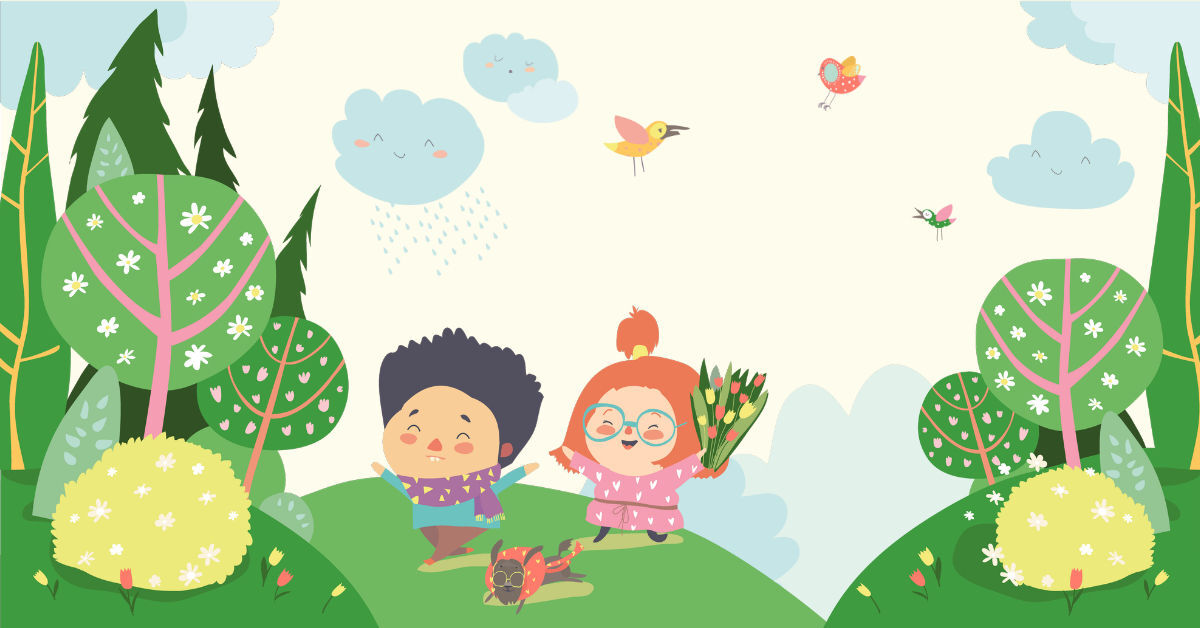
From an early age, a young man from North Carolina called Kai Lightner had been making his name well-known in the world of climbing.
By the age of sixteen, he was already a ten-time national indoor climbing champion and one-time world champion. But despite his indoor success, Kai had never climbed outdoors.
It was during the trip to his very first outdoor climbing experience that Craig Flax, the Founder and President of the Youth Transportation Organization, along with Kai’s mom Connie, were discussing the nationally established ‘Every Kid Outdoors’ program that provides free admission for fourth graders to visit national parks.

Connie, who grew up on welfare in Cleveland, was talking about what a joke it is because who cares if you can get into a park when nobody can get to the park. If you live in a poor neighborhood, your life is eight blocks by eight blocks, and owning a car is out of the question.
Even if you own a car, the additional gas expense only adds to the burden of economical struggle and nobody wants to pay $30-50 to get on a bus to get to a park.
It is stories like these that echo the troubles of thousands of communities across the United States where underprivileged individuals cannot access basic transportation modes to manage daily activities such as travelling to work, accessing healthcare, and reaching other services.
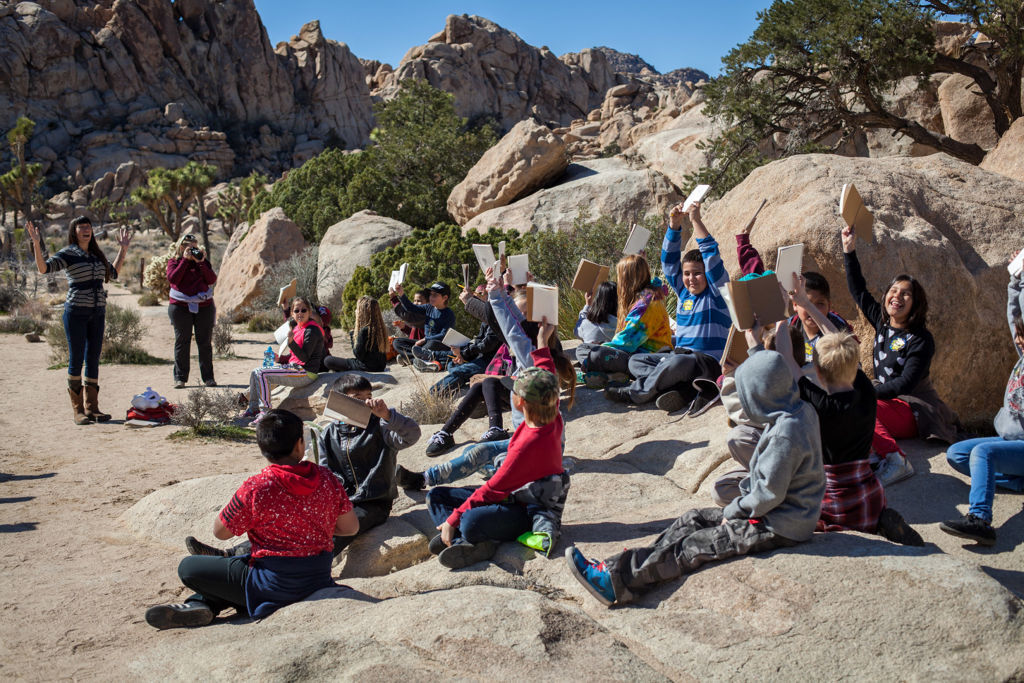
There are many factors to consider that impact an individual’s ability to access transportation, ranging from their demographic profile to socio-economic status. This lack of accessibility to transport is often referred to as transport poverty or transportation barrier. However, this remains loosely defined within the existing literature.
The overarching concept may be represented by five notions and their relationship with one another. But in general, an individual who meets one of the criteria below is typically presented with a transportation barrier.
A well-documented example of these notions has been recorded in the medical sector, that often cites transportation as a major barrier to healthcare, where studies have shown how transportation barriers carry a greater burden of disease which may consequently reflect the relationship between disadvantaged individuals and transportation availability.
As more and more studies pointed to the lack of transport solutions for a vast array of local populations, many ride-sharing giants teamed up with insurance companies and healthcare facilities to reduce potential transportation barriers by providing suitable microtransit services (known as Non-Emergency Medical Transportation).
Despite the general awareness of transportation barriers gaining more attention from the transportation industry, the surface had merely been scratched. According to the Bureau of Transportation Statistics, 20% of low-income families (defined as at or below $25,000 per annum for a family of four) own no vehicle. Bearing in mind, of course, that vehicle ownership does not always signify vehicle accessibility; for low-income families who own a vehicle 60% of children are required to take the school bus due to the family vehicle being occupied or the need to save gas money.
Many non-profit organizations provide services for today’s youth, such as educational field trips or events, but we are confronted with the absurd problem of many children not being able to get there.
Consequently, these children are missing out on invaluable concrete experiences whether it may be an educational field trip to a cultural institution or an extracurricular activity outdoors (to name a few).
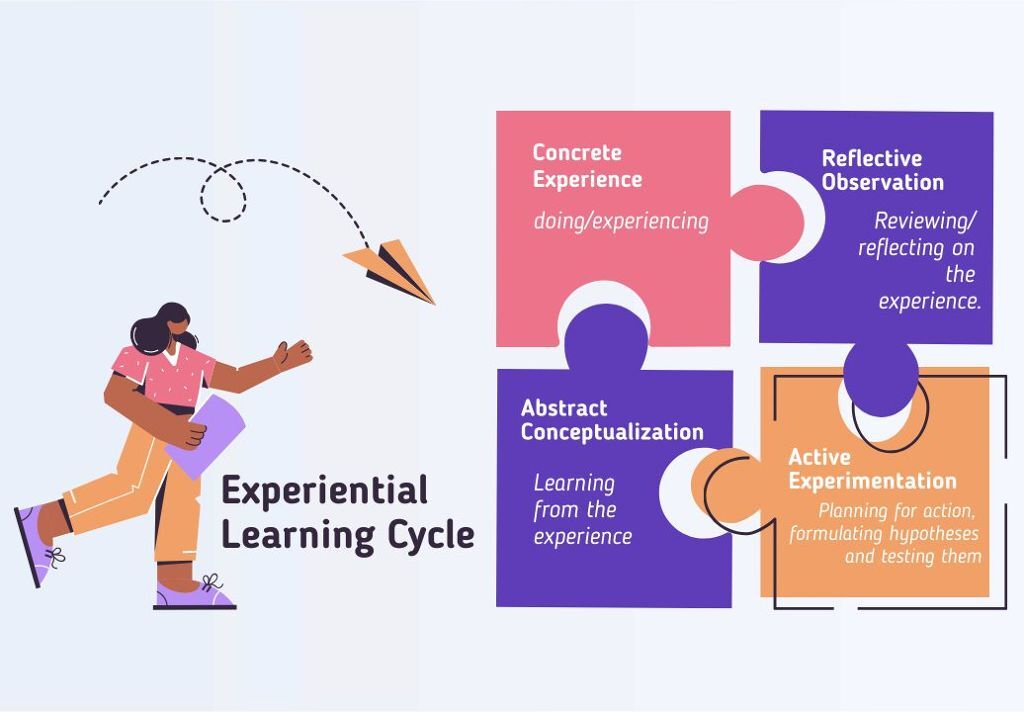
These types of concrete experiences constitute a fundamental building block to our learning experience and have been strongly correlated to the overall improvement of the learning experience of younger learners.
In fact, researchers at the University of Arkansas found that for children who attended a cultural institution displayed improvements in critical thinking, historical empathy, and tolerance, with these results being amplified for those from less-advantaged backgrounds.
After listening to Connie’s words during their trip, Craig Flax understood that there must be thousands of youths out there who are unable to experience the resources that are available to them.
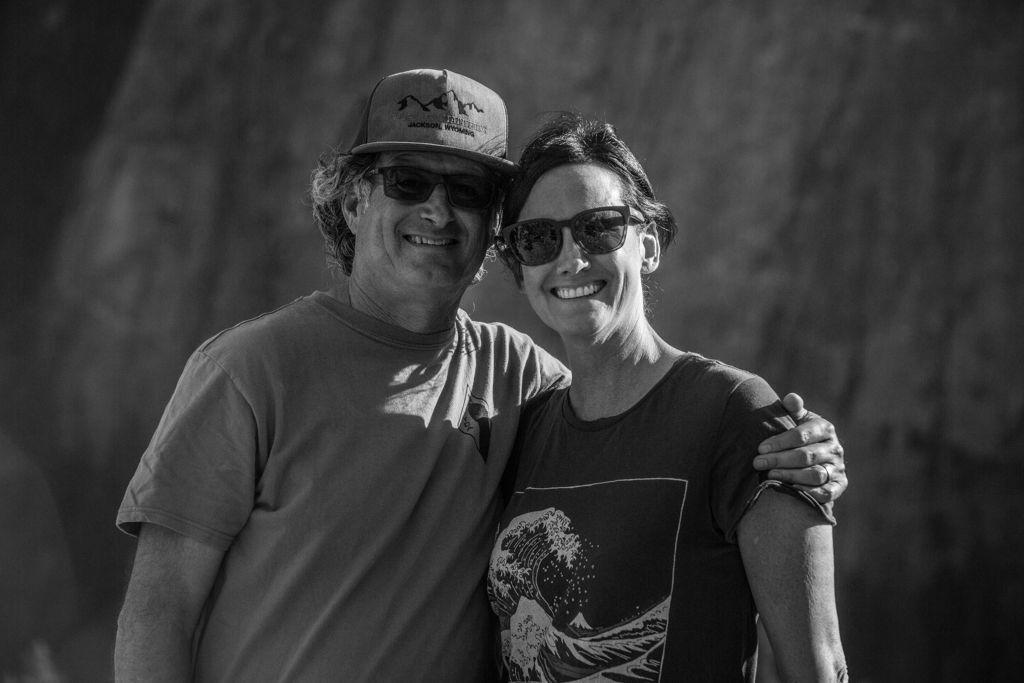
In an interview with Sengerio, Craig highlighted the urgent need for a last mile solution for getting youths to and from local programs.
I started talking to a bunch of local non-profits and I asked them if they had access to free or inexpensive transportation, would they be able to serve more of the youths.
100% of the responses were ‘yeah, transportation is our largest hurdle!’
A lot of non-profits had given up on transportation altogether. Basically, if the youth can’t get to their program, they can’t participate in the program. For organizations that still offer transportation, it can cost them up to 50% of their overall budget!
With a vision that transportation shouldn’t be the obstacle in our youth’s development, in 2016 Craig founded The Youth Transportation Organization, more commonly known as Yoots, a 501(c)(3) organization with the aim of implementing a convenient transportation solution that enables underrepresented children and K-12 students from Title 1 schools to securely travel to and from programs ranging from outdoor education to athletics, arts and environmental education.
Yoots achieves this by collaborating with other non-profit organizations and supporters to provide these services funded by individual donations and grants. For the first few years of the project, Yoots worked closely with Lyft who had offered their platform to help Yoots in establishing its services for transporting children to healthcare appointments.
One of Yoot’s founding partners is the UCSF Benioff Children’s Hospital’s Pediatric Care Facility that tends to approximately 36,000 patients each year with 98% of these patients on or below the poverty rate. A shocking 30-40% of appointments were being missed with the clinic believing that these numbers are a result of a lack of affordable transportation. However, since their partnership with Yoots, the no-show rate has seen a vast improvement:
[Yoots] immediately started getting rides for the kids who couldn’t make it to their appointments and as a result we greatly improved the no-show rate. It turned out the transportation wasn’t the only thing keeping them from going, but it was super, super helpful.
In the three years that we were in the healthcare field, we got hundreds of kids to doctor’s appointments.
But given the already huge investments other corporations had invested in ‘last-mile’ healthcare services, Craig and Yoots wanted to turn their attention to other areas where transportation is a barrier to equity, somewhere where Yoots’ cause could make a greater and more sustainable impact.
Further research and networking uncovered an array of outdoor/ environmental non-profits that were facing the same problem— getting the children to their programs.
There were a lot of holes in the external education space that needed improvement. So in the time that I was doing healthcare work, I was also talking to a lot of organizations in the outdoor education field and environmental education and found that we could make a huge difference.
One such organization is Outward Bound, an organization globally renowned for its fantastic outdoor educational programs that provides the necessary experiences for young students to develop as leaders and encourages the acquisition of useful skills to bring them every success in their future.
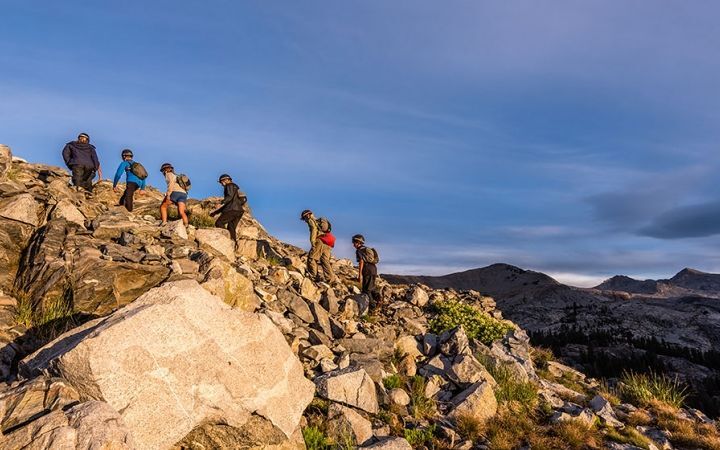
With the aim of engaging as many youths in their program by offering scholarships, especially underrepresented youths who may even benefit the most from the program, consequently Outward Bound’s Californian branch has had to cut back on its transportation budget.
Fortunately, the organization’s partnership with Yoots has produced the perfect solution to this problem and as a result, many youths are finally being connected to a program that was once not possible.
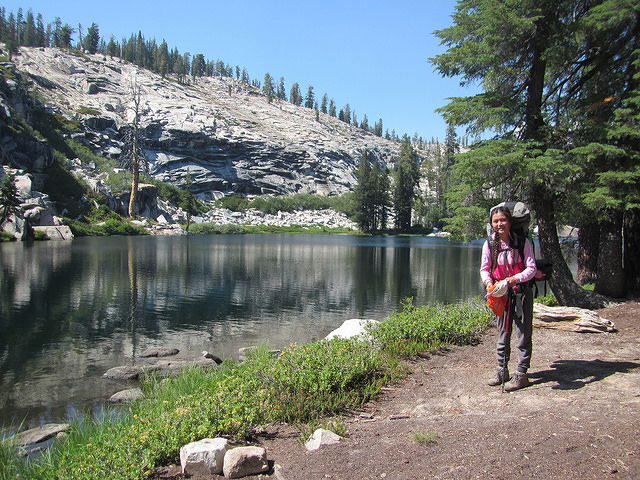
In addition to its many partnerships, Yoots has recently become one of twenty organizations chosen as the first class of grantees for the ‘Route to Parks’ program offered by Parks California. The program aims to ensure the park systems remain welcoming and accessible, especially for communities that have difficulties getting to and from parks in the San Francisco Bay Area.
The fantastic initiative Yoots and its partners are providing for youths and local communities relies tremendously on the help of its supporters who can offer their resources to maintain the initiative’s services. More specifically, Yoots strives to work closely with neighboring transportation programs that are abundant within the Bay Area’s Tech Company community where companies typically operate their own employee commuter programs.
The South San Francisco tech giant Genentech has played an essential role in Yoots’ success by lending their modern charters from their pioneering gRide program, reputable for its outstanding sustainability goals and employee satisfaction.
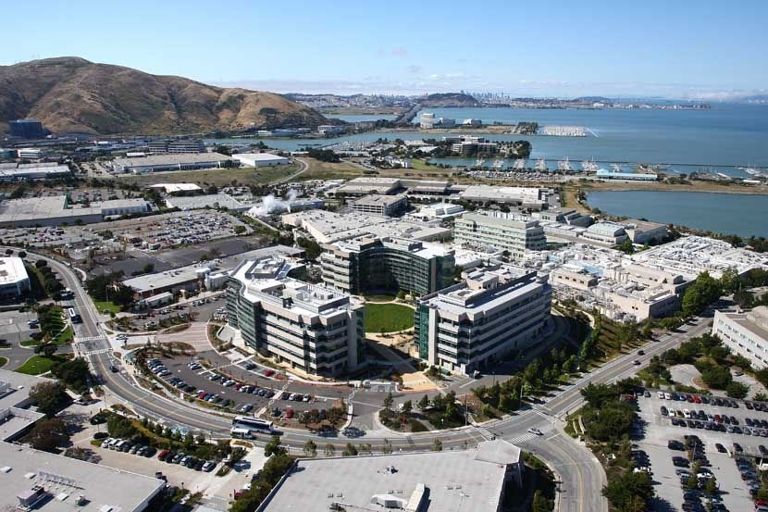
When Craig met with Genentech’s Director of Transportation for Site Services and Head of the gRide program, Andy Jefferson, Andy and Genentech really believed in Yoots’ mission and were pleased to get on board with the program. Craig told Sengerio that:
It’s very easy for a corporate partner to say no because there are so many hurdles the transport department has to go through; for example taking on the extra work, discussing the project with multiple departments and the CEO. Everybody has to be on board.
But Andy and his gRide team at Genentech really believed in our mission.
Once you get past the ‘it’s easy to say no’ phase, it becomes really easy to say yes. And I’ve made it my job to make it as easy as possible for our partners.
The Yoots–Genentech partnership relies on Yoots managing the services initially but the information is then handed to Genentech, whose third-party transportation partners take care of the rest (including the driver, insurance, and fuel).
Prior to this year’s pandemic, Genentech was using Compass Transportation as their bus operator when they first partnered with Yoots, who shared Genentech’s enthusiasm for Yoots’ project. However, during this year’s ‘down-time’, Genentech have begun contracting a different transport company, WeDriveU, to run their services— a new partnership Craig and Yoots are very excited to work with.
Together, the partnership has been able to cater for major youth events such as the ‘United Negro Fund’s Tech Summit’ in 2019 that saw students from Historically Black Colleges and Universities from all over the United States engage in a tour of all the import tech companies in the area.
Genentech’s modernized charter fleet consists of 60 cutting-edge motor coaches that are rapidly turning electric, reinforcing their status as one of the most sustainable transport programs in the Bay Area.
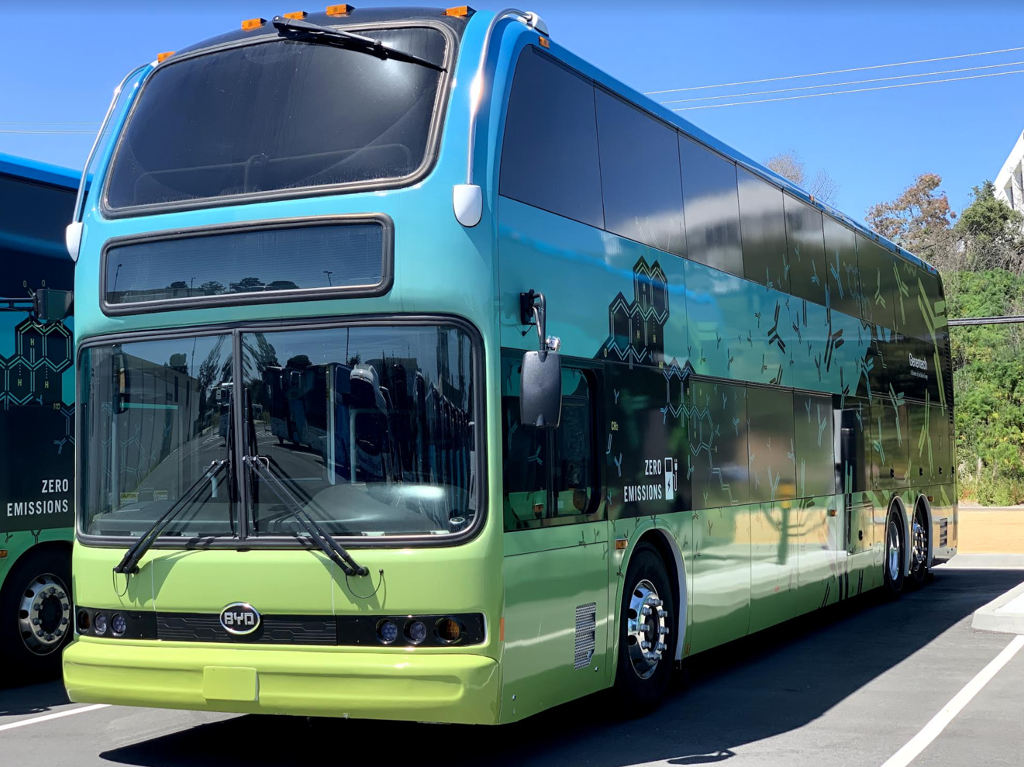
Not forgetting of course, that their vehicles are absolutely breathtaking.
Picture a tremendous double-decker, gracefully touched with a trickle of antibodies running down its side that affirm Genentech’s scientific excellence, pulling into a poor neighborhood to take the kids on their next adventure. It’s quite the spectacle to witness— even more so for those getting onboard!
I’d like to thank Andy and Genentech, who have been phenomenal. They always find a way to help. I’d also like to thank Compass Transportation, who no longer works with Genentech, but did a lot of wonderful work for us back in 2019.
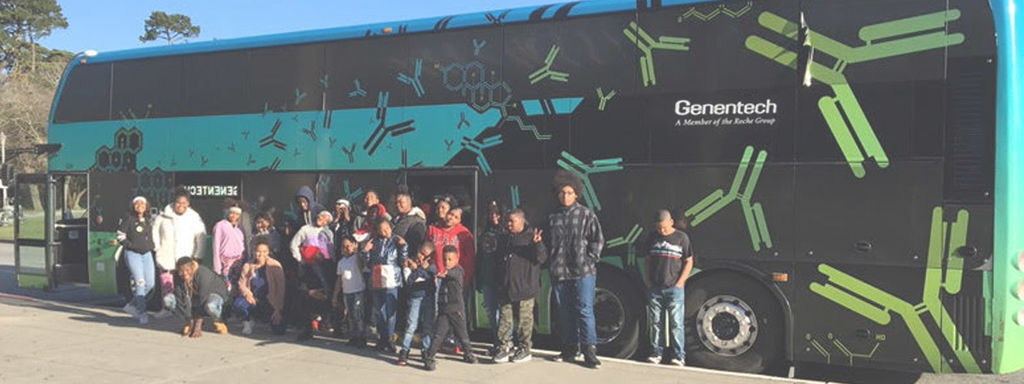
Aside from the excellent work Yoots and Genentech are achieving, Yoots has recently been acquiring its first additions to its own fleet, consisting of 10-15 passenger minivans. This comes as car rental agencies in California will not rent to youth serving organizations. However, Yoots even provides the necessary driving training for staff of partner organizations to obtain their commercial driver’s licence, so that they can rent the minivans for their services for a cost 75% cheaper than the standard market rate.
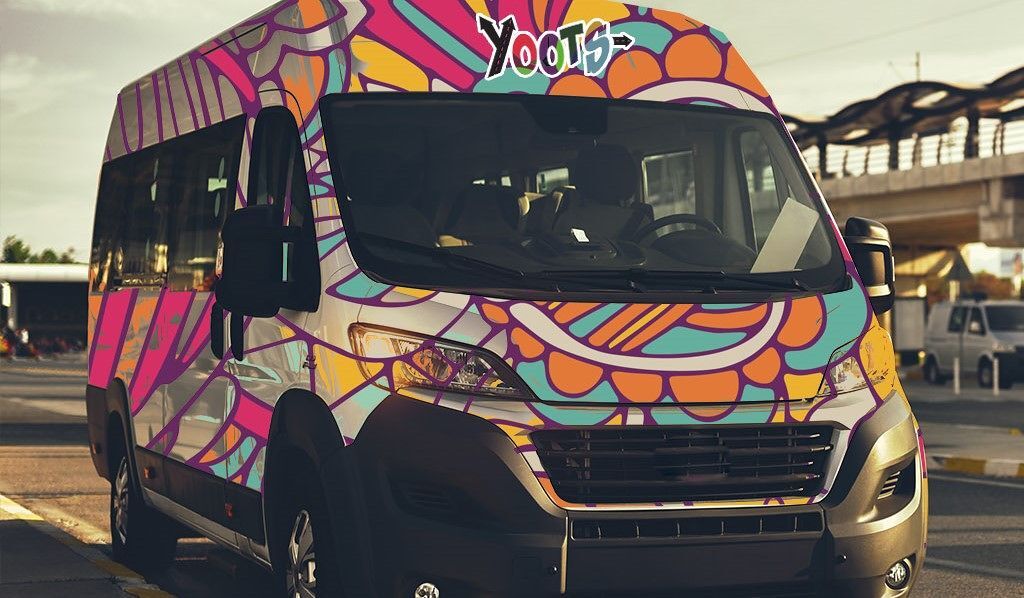
The initiative Yoots offers thousands of youths each year significantly reduces the barrier that was depriving these kids of the opportunities to discover what life has to offer. Yet there are thousands and thousands of other youths that remain without an efficient transportation solution.
As a way of extending the reach of Yoots’ partners to a wider community, Yoots has partnered with San Francisco Bay Area Rapid Transit (BART) to build a fund to offer free field trips to 400,000+ students each year with the help of BART’s train system that connects San Francisco with Oakland and boasts a track span of over 112 miles.
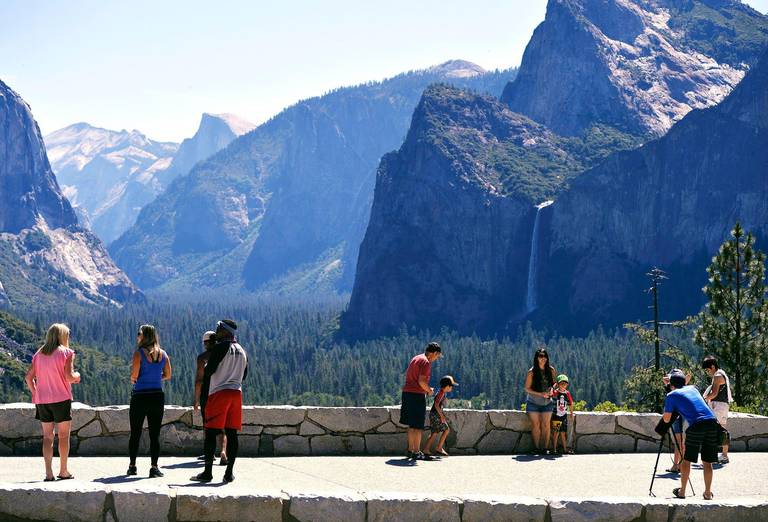
The program, called ‘Free Field Trip Fund’, aims to provide a simple platform for teachers to organize free transportation that enables them to enhance their classroom curriculum. The initiative’s objective is to collect $2.5 million every year to provide the field trips for Bay Area students. In order to do this, Yoots has created an extensive directory for teachers/ educational program leaders to request field trips and provide first and last-mile services to and from BART stations. Despite the pandemic affecting the program, the Yoots–BART partnership strives to resume its plans as soon as our communities can safely reopen again.
Even with this year’s difficulties, the good news is that BART’s board is still very interested in continuing with the program, and now that the vaccine is on the way, I think the board is more interested in going out and helping us fundraise for this now.
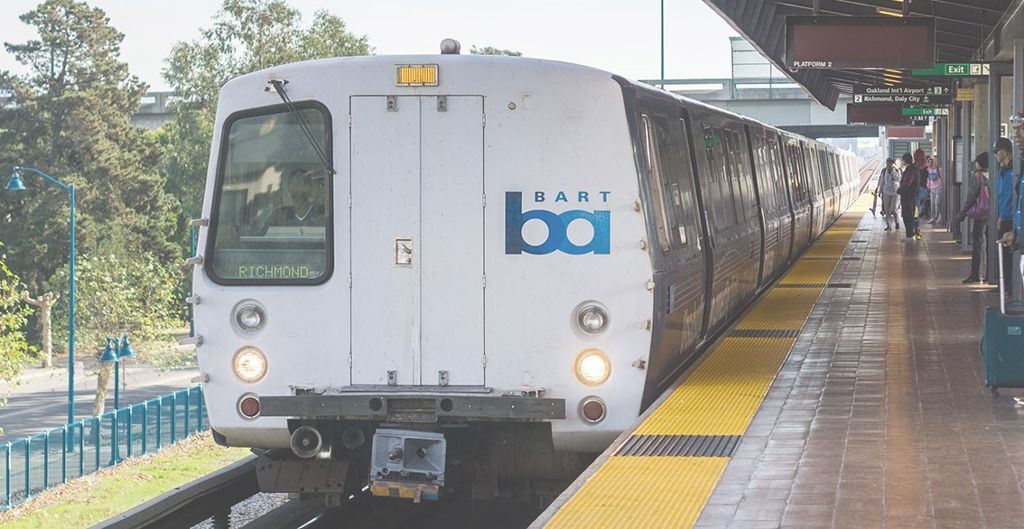
As with the majority of the transportation industry and the rest of our society, the pandemic has rattled its very foundations and left our futures stuck with a giant question mark. Nonprofits like Yoots and its partners have certainly been hit hard by the pandemic, but it is in the most difficult situations that we realize that these organizations are a pillar to local communities and that, together, we must aspire to maintain their support.
In our post-pandemic world, from cultural institutions to cinema and from restaurants to zoos, every corner of society is begging to be reconnected which only emphasizes the importance of the work being done by nonprofits like Yoots.
We must take a leaf from the exemplar cooperation of tech giant Genentech, BART, and the many other donations, to understand that the amazing work they are doing with Yoots is greatly strengthening the fabrics of our local communities. The generosity of these larger transport agencies really makes the difference in Yoots’ cause by providing access to their resources that aren’t always occupied in their concurrent programs.
We must realize that it is the transportation industry that has the key to unlocking a future filled with a sense of togetherness, a sentiment most likely taken for granted prior to the pandemic days.

ABOUT SCOTT FRANKLAND
Scott Frankland is Head of Content at Sengerio. His spirit of inquiry leads him to the world of transportation and mobility to connect with the industry’s leading experts and shine a light on the hot topics.